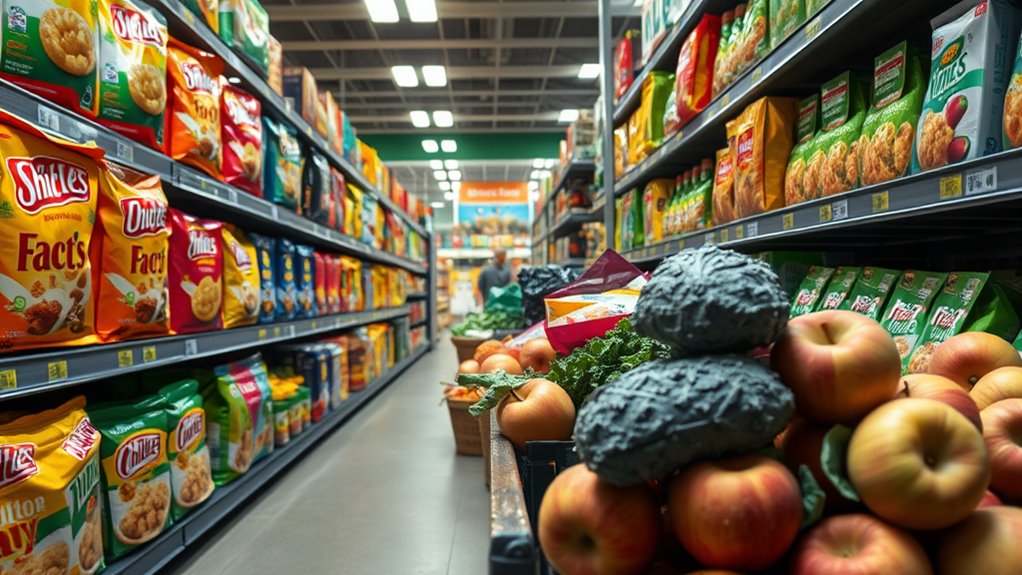Why You Should Rethink ‘Healthy’ Foods at the Grocery Store
When you’re shopping for groceries, you might assume “healthy” labels mean better choices, but that’s often misleading. These products frequently hide sugars, additives, and preservatives that undermine your goals. You’ll soon see why rethinking them is essential for real wellness.
The Truth About Misleading Labels
Have you ever scanned a grocery label claiming a product is “natural” or “low-fat,” only to discover it’s packed with hidden additives?
In the domain of misleading healthy foods, companies twist terms like “natural” to mask artificial ingredients, as research from consumer watchdogs confirms.
Additionally, many products labeled as “low-fat” often compensate with added sugars and preservatives, highlighting the importance of understanding misleading food labels to avoid empty health promises.
You’re left evaluating nutrition facts, not hype, to spot these deceptions and make informed choices, avoiding empty health promises.
Hidden Dangers in Processed Foods
Processed foods often conceal health risks that extend beyond deceptive labels, packing in additives like preservatives and artificial flavors linked to increased disease rates.
You’re at risk from:
-
Excessive sodium that raises your blood pressure, as evidenced by CDC studies.
-
Trans fats boosting your cholesterol and heart disease likelihood.
-
Hidden sugars driving your obesity and diabetes risk, per WHO reports.
-
Artificial colors linked to behavioral issues in you, based on research.
-
Preservatives potentially increasing your cancer risk, according to animal trials.
-
Additionally, certain processed foods may undermine your immune system, making you more susceptible to illnesses.
Marketing Myths and Buzzwords
How do savvy marketers lure you into buying foods labeled with buzzwords like “natural” or “superfood,” which often mask unhealthy ingredients?
They exploit unregulated terms that imply health without proof, as “natural” isn’t defined by the FDA.
Research shows these labels boost sales by up to 20% by tricking you into perceiving false benefits, leading you to prioritize hype over real nutritional evidence. Additionally, many of these so-called “superfoods” lack the essential immune-boosting nutrients that truly support your health.
Ingredients That Undermine Health Claims
While products boast health claims, ingredients like added sugars and sodium often sabotage those promises by spiking inflammation and blood pressure.
These culprits lurk in everyday items, undermining your well-being.
- Added sugars drive insulin resistance and weight gain.
- Sodium elevates blood pressure, heightening stroke risk.
- Trans fats raise LDL cholesterol, promoting heart disease.
- Artificial sweeteners disrupt gut microbiota, affecting digestion.
- Refined grains spike blood sugar, exacerbating diabetes risk.
Moreover, portion control is crucial to avoid hidden calories that can impede your weight loss efforts.
Tips for Smarter Grocery Shopping Decisions
Arm yourself with practical tips to outsmart misleading labels and build a healthier cart.
Start by scanning ingredient lists for hidden sugars and sodium, as studies link them to increased disease risk.
Prioritize whole foods over processed ones, opting for those with minimal additives.
Use apps to compare nutritional value, and plan meals ahead to avoid impulse buys, ensuring your selections are evidence-based for long-term benefits. Additionally, consider making simple food swaps for healthier living to enhance your meals without sacrificing flavor.


